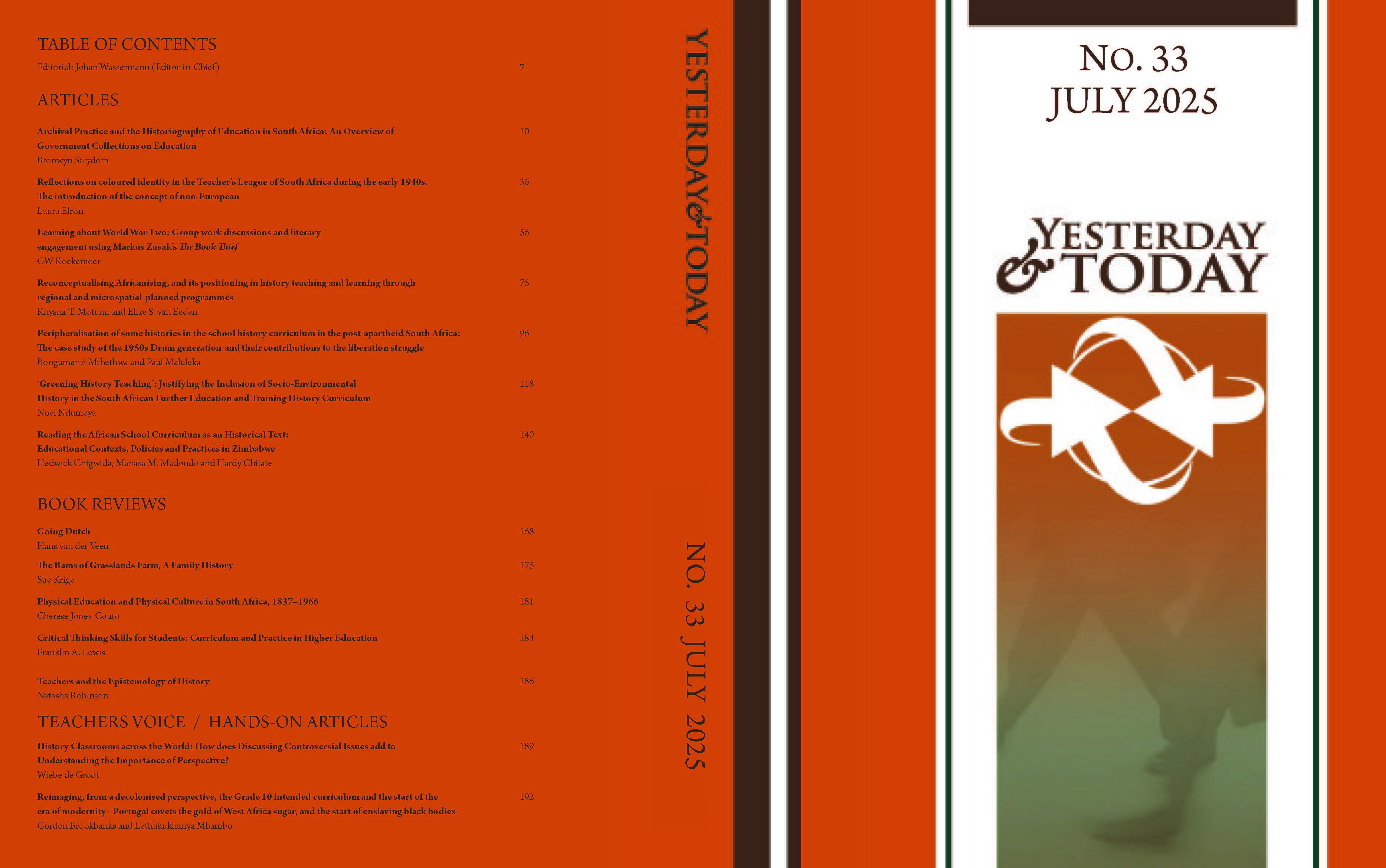Reconceptualising Africanising, and its positioning in history teaching and learning through regional and microspatial-planned programmes
DOI:
https://doi.org/10.17159/2223-0386/2025/n33a5Keywords:
Africanising, Africanizing, Africanisation, Africanization, Regional History, Microspatial history, Higher Education and Training (HET) history, Curriculum and Assessment Policy Statement (CAPS) for history, Teaching, Vredefort Dome regionAbstract
In the past 60 or more years, African scholarly debates on education touched on Africanising and decolonising teaching and learning. Africanised pedagogies should be cognisant of the necessity to sensitise twenty-first century students to diverse scholarly and community voices as they become more accessible as learning possibilities. Equally so, present-day complex contexts in which people live because of the past, requires a more intense regional conversation. With these realities in mind, the authors, both familiar with the field of regional history and seasoned in the teaching of history, engaged in a research project to concisely, yet deeply, reflect on the historiography of Africanising. Secondly, to determine whether regional, and microspatial history variations can be deployed as facilitating agencies of Africanised educational, the authors felt that it is de-ontologised from its former politically attachment. While the historiography emanated mostly from qualitative desktop research, the study that covered the Vredefort Dome region’s value for understanding some curricula topics by considering the histories ‘around us’ had been recently intensively researched for the completion of a PhD. The outcome of this research has been mostly applied as experiential examples in this revisited debate on Africanising in teaching history and the features related to it, form part of this discussion. In engaging with the literature and research conducted in an applied analytical way allows the authors to affirm the possibilities of ‘Africanising’ the teaching of history with the involvement of local communities in the recovery of their memories and for researchers to consider its possibilities in microspatial contexts as a steppingstone towards African-inspired educational thought and scholarship.


